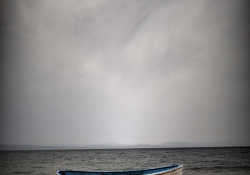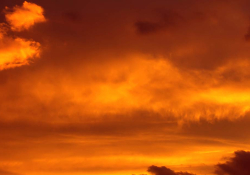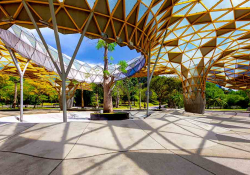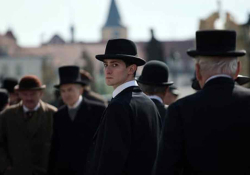Keeping My Mother Alive
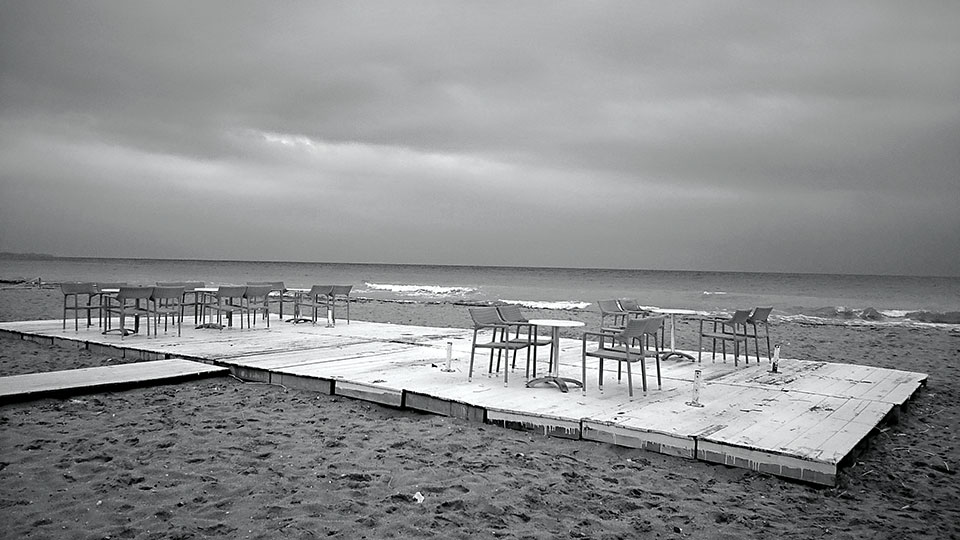
In Greece, a son who has returned to his mother’s home to care for her during the Covid-19 crisis contemplates what the global pandemic can reveal about our character.
The first week of March was a frenzy with the concerned messages from friends to confirm details about situation-report updates, rumors of a mandated quarantine, and safe retreats: “Are you coming to New York? Are you going to Zurich or Athens?” Jennifer was leaving her high-density neighborhood in Brooklyn for a furnished apartment in Hudson; Walter chose the rural isolation of Turbenthal over Zurich; my sister in Athens had to work her shifts in the hospital; and David had no intention of leaving Italy. It was time to decide, before the airport closures, the suspension of flights, and nationwide lockdowns were put in place. The world I’d taken for granted was ending. I didn’t know what to think—I still don’t—only that I had to be with someone who needs me.
My mother does not think of the new pandemic as a doomsday scenario, or of me as anything but her son. In the last weeks, Nelly’s pored over her notes trying to prepare meals culled from cookbooks and food shows. She’s never been particularly drawn into the culinary-tour-of-the-world kind of shows and the elaborate cross-cultural dishes. New angles are unattractive to her, unless they can explain her position. She scares easily; my mother is a retired microbiologist. For her, both roles have been the same job. Sometimes she fixes me with the same cautious glance she had when she used the microscope.
Nelly doesn’t need to see the world in a new light; she needs to look at it right. Like all mothers, she has a sixth sense for trouble; she always knows what will go wrong in the way you understand danger about the ones you love even before you have a reason to worry. She’d asked me to put everything on hold before my US and Australian theatrical tour was added onto the lengthy list of canceled and rescheduled entertainment events around the world.
“For once, listen to your mother.”
This is not the first time I’ve lived with her in the last decade. At the beginning of the EU economic crisis, I washed up at her door in Thessaloniki, completely broke, having no health insurance, unable to find even restaurant jobs. She took me in, gave me my teenage room, unwilling to ask questions, only to spare me the tyranny of wondering what happened and what got me to this point. This time I don’t feel pitied, I’m not the self-indulgent luftmensch, another bohemian-poor writer in his mother’s apartment. This time the urge to be a good son becomes the reason to want to make a difference, to do my part to help slow the spread of Covid-19.

As I write this piece, Greece is shuttered. The stores are all closed except food stores and pharmacies. The government introduced emergency legislation to prevent overstretched public hospitals from falling apart. The prime minister extended a closure of schools to include museums, bars, restaurants, and theaters and banned social gatherings, prioritizing human life over bailout clauses. It was a difficult decision, especially for a country that had only just begun to show signs of economic recovery after the ten-year debt crisis. It was a sound decision for a health-care system faced with the unprecedented pressure of such proportions.
My mother’s days are spent inside. “He won’t let me go for a walk,” she tells her friends, mumbling quietly into the phone, but her voice radiates such relief that there is some security in the world, as if the gratitude is too much to speak of. Like a protected witness in her domestic routine, she is trying to understand the strange thing that our life has become, and that life includes the rituals of our new ordinariness: I spot-clean my hands, double-mask with two paper surgical masks, which Nelly inspects for any tears, each time I pick up her prescriptions at the pharmacy and visit the grocery shop. I take off my shoes and sanitize them before I step into the apartment, and she replaces the Styrofoam trays wedged between the kitchen countertop and the disinfected food packaging from the supermarket.
Nelly read a scientific study about the odds of putting our fingers on the mucous membranes of our faces, rubbing and scratching them, and the risk of infection: “Funny how humans need to touch their nose and mouth so frequently,” she said. “It may be a reflex response to life, as if we are convinced that the world holds odors and flavors that only we can smell and taste.”
We are the main characters in our private dystopian sci-fi stories, aware that our alertness is a determining factor for the health of the most vulnerable people among us.
I like to think that I descend from and belong to an all but ancient Mediterranean clan of sons who take matters into their own hands when their widowed mothers and fathers are left to die from neglect so that the young may live. We are not just caregivers. Our job is to curb the outbreak. We are the main characters in our private dystopian sci-fi stories, aware that our alertness is a determining factor for the health of the most vulnerable people among us. In a world grappling with the pandemic, we help elderly people, wearing our empathy the way Superman wears the red trunks over his tights: knowing that sometimes you have to wear your underwear on the outside to change the way people think about what is practical and viable.
In a neighborhood of pensioners, we wear our masks, our features abstracted—a motley crew of unmarried sons, divorced daughters, dorky milquetoasts and mollycoddled pricks, leftists and right-wingers—performing our duties with a vague feeling of stepping from one parallel universe into another each time we venture out to collect the mail or buy food. We meet one another at the checkout line in the supermarkets, nodding our heads in respect and giving one another tips about where to find pandemic supplies. We invest meaning in the ways that one person’s life can be saved by another person’s willingness to comply with the social-distancing orders.
My mother compares the disease with a much-needed lesson, but the phrase is sort of misleading. It makes me think of an opportunity to change our behaviors and avoid a similar situation in the future, but even that analogy implies that there can be a future with yourself in it. There is no battlefield, only the new stories of an invisible threat on every high-touch surface. Everything’s potentially unsanitary and therefore threatening. You touch the enemy, and he touches you back. There are two sides to every story, and ours no longer matters. What matters now is the apocalyptic imagery of the closed stores and supermarket shelves stripped bare, disused seaports and highways, empty pews and airports—a collection of nightmares we stored inside us a long time ago, like an emergency library of signs piling on twist after twist to keep you guessing to the very end what will happen to our civilization.
All of it—the lesions caused by the ill-fitting coronavirus masks, the giant trenches in public cemeteries, the coffins of the dead piled up in churches and temporary storage units, the refrigerated trucks outside the hospitals, the farewell words to dying relatives over Skype in the intensive-care wards, the neighbors taking to their balconies to express their solidarity singing and applauding health-care workers, one challenge after another, one victory at a time, the unimaginable and the unpredictable rolled up in one—it is the new measure of time.
One challenge after another, one victory at a time, the unimaginable and the unpredictable rolled up in one—it is the new measure of time.
Suddenly, there is a clock inside me, but time is no longer one more thing you can save. There is an after, though after what we can’t say exactly, and there is a maybe, the closest thing there is to a future—a measure of resilience, a temporary ban on normalcy, as if common sense is missing something fundamental and it can’t hold us all anymore.
We’ve been so determined to blame our lifestyle—from our government policy failures and our insatiable consumerism to the foundations of the civilization on which our Western world has risen—that it’s almost impossible to understand how we found ourselves unprepared. We look to conspiracy theories for consolation because it can be such a comfort to diminish the role of cause and effect. There’s a new fear masquerading as a litany of fears, ancient and at the same time modern, which our minds are unable to process.
My mother asks me about my friends. She has a frown on her face as if her questions can keep them safe. I tell her about Rani, who decided to stay with her mamá in Perth, Australia, and canceled her ticket to Kastellorizo in August. A couple of weeks ago, we tried to consider the implications and all those things that seem negative at first but could turn out to be positive in the end. “How are we going to replace the human touch?” she said. “Can you imagine not being able to kiss again?” I considered the possibility: the human lips that have served our civilization for hundreds of years as our universal icon of sensuality, the vehicle of pure devotion and prurience, suddenly become the suspect. They convey our old, overrated values to glorify risk over safety. No kiss is worth all this horror. Rani is right. The real thing to fear is what will happen after the quarantine. It’s not the end of the world, but the end of our habits.
Maggie, my Greek publisher, wonders what our lives will be like one year from now. The last time we spoke on the phone, she was heartbroken at losing one of her dear friends to Covid-19. Everybody says that the future is unclear, but that’s not exactly right, she thinks. It’s not really the future, but the realm of the human. Walter, on the other hand, thinks that we are made to adapt to the most surreal of circumstances. Like mutated amphibians, we’ll manage to breathe through our skin. Maybe we’ll be able to lie dormant for a long time and hibernate, and instead of our metabolism, our perception will slow, he says, and our hearts will drift into an uninterrupted and restorative sleep. “Until we can muster a concentration of humanity to protect our brain cells and soul fibers from grief.”
Anna had been looking after her father a long time before the coronavirus outbreak. “Maybe we are not supposed to be safe,” she says. “Being an endangered species may help us appreciate what we have.” Anna, who refuses to use the word dementia and fondles her dad’s hair the way she would pet a child, has gotten a strange feeling lately: that she is not preparing herself for anyone. “I’ve stopped living ahead, as if time started to flow backward.”
Maria, my lawyer in northern Greece, has been fighting cancer for the last seven years. She didn’t really need another lesson about unforeseen disasters and how cruel and unfair life can be. She knows what it’s like to assign a value to patients based on their age, and what it means for a disease to be linked to a stigmatized group: aside from the breast cancer, she’s been fighting the stereotype of metastatic sexless femininity. While for most of us the new coronavirus disease will one day end, for Maria there won’t be a vaccine to help in the race to combat her disease.

Everyone is talking about how our life has somehow been upended, the challenges to our humanity, and the effect on the economy. We search for metaphors, for a light switch on-and-off to reopen the economy, for an evil genius to explain the different patterns of disease. We think of toppling dominoes to play up the element of chance in the spread of the virus, invoke wartime comparisons of our health-care professionals to troops, and regard the virus as plague, punishment, and nature’s vengeance.
Are we the lab rats in a hazardous experiment or the new tenants of a world where the intimate connection between humanity and healing becomes all the more evident?
The pandemic will shape our world. As the number of cases grows, it’s not only the “why” of the coronavirus that makes our blood run cold but the possibility of a hidden meaning. What world does this nightmare come from? Does it make us realize the illusion or the preciousness of freedom? We are all in this together, but what does it mean to know that what affects one person anywhere affects everyone everywhere? Are we the lab rats in a hazardous experiment or the new tenants of a world where the intimate connection between humanity and healing becomes all the more evident?
German chancellor Angela Merkel has cautioned that we’ll be living with the virus for a long time. Until the pandemic runs its course, there will be people who truly think that this is a hoax or the equivalent to the annual influenza infection rate. There will be people who flout social distancing guidelines and join antilockdown protests, holding signs that read “Sacrifice the weak, reopen the economy.” No one has any idea how many more are going to die, how much the world is going to change, or what our lives will be like. Covid-19 revealed a common truth about our character, about the admirable and the embarrassing, the sweethearts and the assholes; we can be united in a common cause or have absolutely no regard for the weak. The transition after a profound crisis is not only about our ability to predict and solve similar challenges in the future but also about the realization that the weaker demand more time and attention in the lives of those who can survive them.
Covid-19 revealed a common truth about our character, about the admirable and the embarrassing, the sweethearts and the assholes; we can be united in a common cause or have absolutely no regard for the weak.
When our world returns to normalcy, we are going to need new words to touch the very core of what it means to be alive. New stories will come rushing out of this biblical end-of-the-world-as-we-know-it transition, tales of survival on a day-to-day basis, fables about how vulnerable and connected we are. My job is to be my mother’s son until we trend in the right direction. My job is to have faith in people like me: we can be desperate and callous, can hurt you and make you suffer, but every once in a while, in the face of disasters, we can be thoughtful and do something that’s more heartbreaking than the intellect’s ability to register it, the kind of unbelievable sacrifice that saves mankind. Every once in a while we can just sit back and be our mother’s sons, knowing that we’re not going to save the world, but at least we can live in one where empathy means survival.
The world will change. If you think that’s scary, wait to see what happens if it does not.
Thessaloniki

